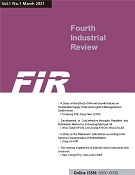 E-ISSN : 2765-7213
E-ISSN : 2765-7213
An Analysis of Elementary School Students’ Perceptions and Satisfaction with Software Education According to Teachers’ Perceived Necessity for Software Education
Ilkyu YOON (Korea Foundation for the Advancement of Science & Creativity)
Yunjae JANG (Sahmyook University)
Abstract
Purpose: This study aimed to examine how elementary teachers’ perception of the necessity of SW education affects students’ awareness of SW education, their intent to pursue SW-related studies or careers, and their overall educational satisfaction. Based on the findings, the study provides insights for improving the quality of elementary SW education and enhancing teachers’ competencies. Research design, data and methodology: Data were drawn from a 2020 survey by the Korea Foundation for the Advancement of Science and Creativity, covering 12,915 students at 1,997 elementary schools. According to teachers’ perceived need for SW education, students were categorized into a “high” group and a “low” group. The two groups were then compared in terms of their perceptions of SW education, career/academic intentions, and satisfaction with SW education; differences between male and female students were tested using t-tests. Results: Students’ overall awareness of and satisfaction with SW education were higher when teachers placed greater importance on SW education. Male students, in particular, showed a sharper rise in their SW-related career intentions and learning engagement when teachers viewed SW education as important. Female students, however, generally demonstrated lower interest and weaker links to future studies or careers in SW, revealing a gender gap. Conclusions: Strengthening teachers’ competencies, offering personalized guidance, addressing gender disparities, providing opportunities for career exploration, and enhancing learning satisfaction appear to be necessary. Ultimately, as key facilitators of SW education, teachers should be supported by ongoing professional development and institutional policies to implement integrated education that fosters students’ creative thinking and collaboration skills.
- keywords
- SW education, Teachers’ perceived need for SW education, SW education awareness, Gender gap
- Submission Date
- 2025-01-31
- Revised Date
- 2025-02-28
- Accepted Date
- 2025-03-12
- 27Downloaded
- 65Viewed
- 0KCI Citations
- 0WOS Citations














